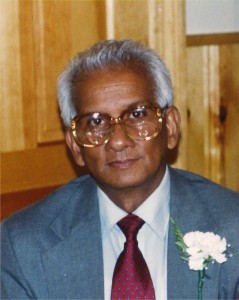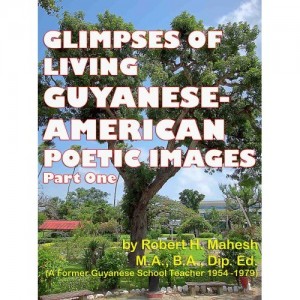Robert H. Mahesh uses the art of poetry to teach today’s young generations of the past
U.S.-based Guyanese poet, writer and history educator Robert H. Mahesh has just published his first poetry book of 25 poems, “Glimpses of Living Guyanese-American Poetic Images Part One”, sold by Amazon.com. The collection of poems has been described as “a storehouse of delight and knowledge…” born as they were, from the poet’s own past life experiences.
However, the writer notes in the book that his first foray into poetry began at age 15 when, in 1955, he lost his “beloved small sister.”






Comments are closed.